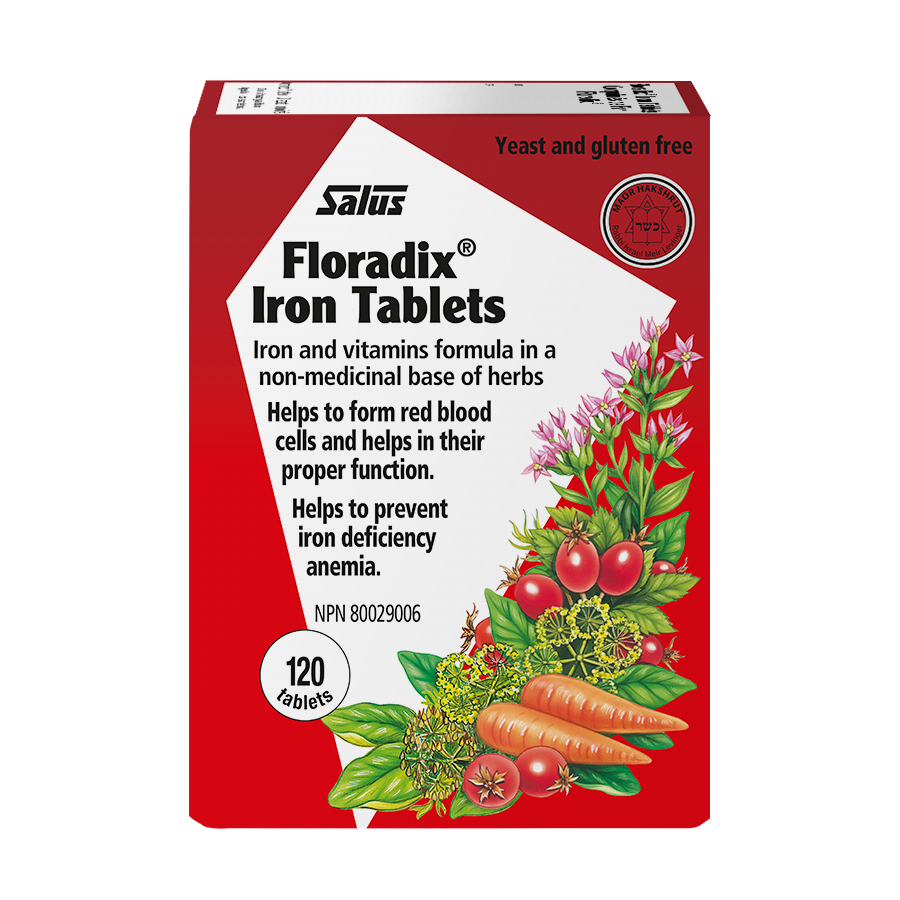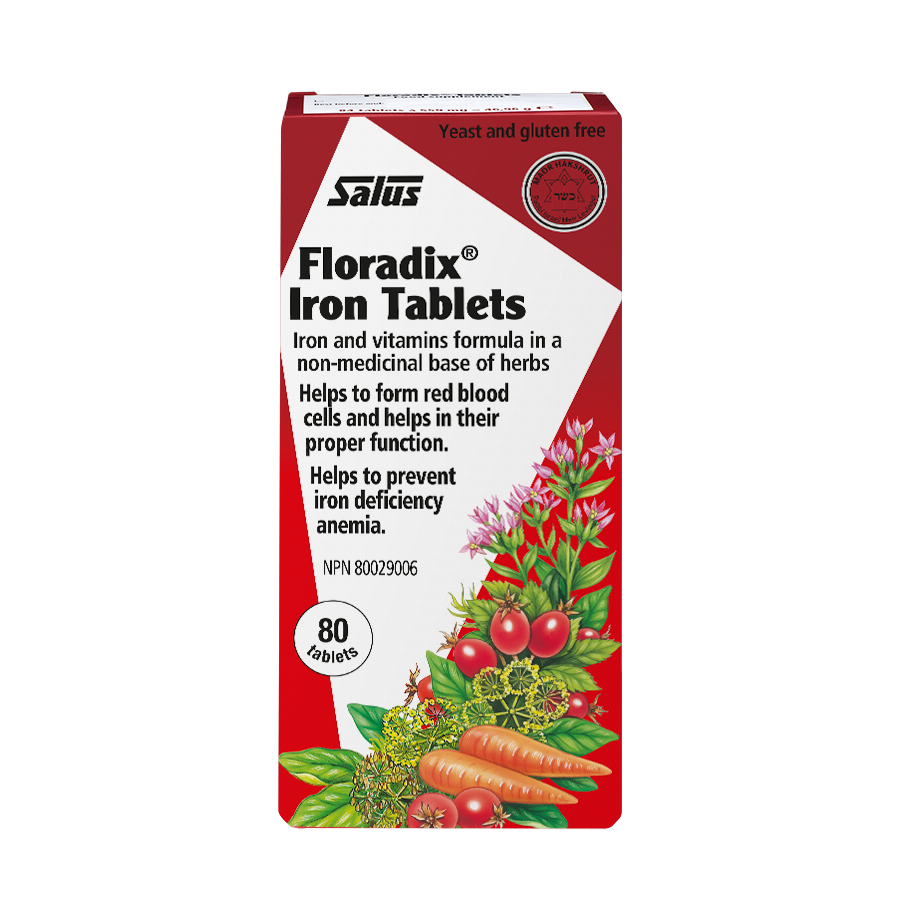Think of iron like a courier, and oxygen like the packages we order online. The courier picks up packages from a distribution centre, loads it onto trucks, and transports it to our homes. If there are not enough couriers working to keep up with the demand for deliveries, we do not receive our packages on time.
In the same way, iron picks up oxygen from the lungs, loads it onto red blood cells, and transports it to every cell in the body. Once our cells receive oxygen, they use it to make the fuel that allows our bodies to function. If we do not have enough iron to carry oxygen to our cells, we are not able to make energy, and we feel tired.
Low iron can cause more than just fatigue. When our cells are deprived of oxygen, every action in the body is affected, from our brain to our toes. This is why low iron can cause wounds to heal slowly, muscle weakness, difficulty with concentration and memory, depression, headaches, hair loss, and weaken our immune system1. Iron deficiency also results in poor cognitive development, behavioural concerns, and ADHD in children2.
The best way to understand your iron status is by having a blood test to measure something called ferritin, which is our iron storage. The tricky part about this test is that in Canada, “normal” ferritin in adults is defined as falling within the range of 5-272 ug/L. Since this is a wide range, you can imagine that someone with a ferritin of 7 ug/L would feel very different from someone with a ferritin level of 200 ug/L.
In fact, research shows that iron supplementation can be beneficial for people experiencing fatigue, even in cases where ferritin is not low enough to cause anemia3. Dr. Hilary suggests aiming for a ferritin of 70-100 ug/L so that the body has enough iron to function in an optimal way.
Some groups of people are likely to have low iron, including:
Vegans and vegetarians1
Women with heavy periods4
During pregnancy and breastfeeding1
People lacking a nutrient-rich diet1
Children with ADHD2
People experiencing fatigue, depression, or brain fog3
People taking acid blocking medications for heartburn1
People with digestive conditions such as Celiac disease, colitis, Crohn’s disease, and SIBO5














